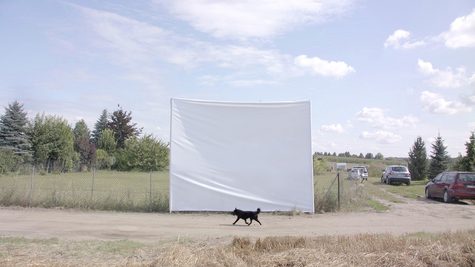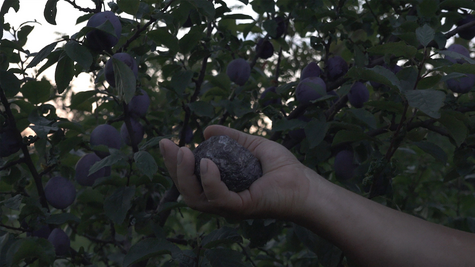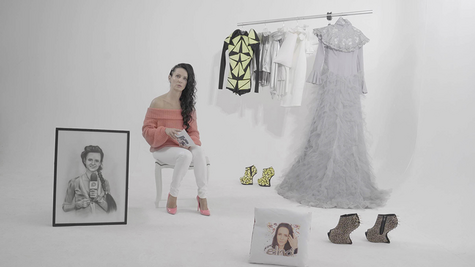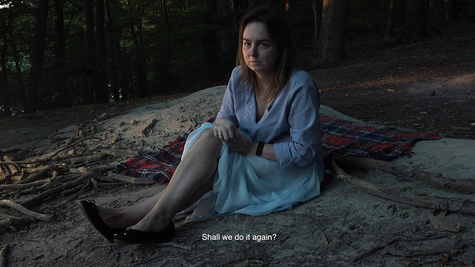The true is the moment of the false
Suspecting that someone might be performing feels unsettling. It makes it hard to tell whether the person in question can be trusted. Natalia Śliwowska, however, takes that which is a source of discomfort in regular interactions and uses it as an asset on a documentary set. In her works the camera is treated as an accelerator of performativity. She sees it as a fishnet to raise the chances of opening cracks that uncover the story that her protagonists want to (consciously or not) conceal. Going a step further, she herself plays the role of a director, consciously accentuating aspects of her personae to what the material requires- from a new-agey healer director to the annoying younger sister insisting to know the answer.
Through her approach to performativity she surmounted cathartic and strangely synchronistic situations. “Walking on Eggshells'” her photographic novel and research publication (co-written with Viola Żelazny) is a rumination on her protagonist confessing a criminal offence during an acting experiment.
Another example is the process of her family members becoming performers of their own stories about a traumatic event, which softly alters their outlook on the past. This is a fruit of a collaborative research into trauma, mourning and memory with the artist Jorik Amit Galama growing into anexperimental documentary Insurance Against Meteorites and The red car is Bartek. In Meteorites, the duo works with performative interventions for two reasons. One: from a purely dramaturgical perspective which lets them condense the story and ponder the essence of their protagonists. Second: directing her parents in staged scenes functions as Natalia’s tool of gaining control of her traumatic past.
Besides conceptual engagement with performativity, Natalia is currently gathering research material revealing the absurdity of death commodification. This research began as a way of coping with her sudden fear of death - the effect of her research into mourning and trauma. While conducting interviews with morgue workers, gravediggers and a CEO of a firm specialised in cemetery GPS navigation software, she stumbled upon a research thread. What was at first intended as the visual exploration of the aggressive commercialization of the Polish funeral culture, now shapes into an insight into levels of alienation vs. fulfillment of people working with death.
- Year
2021
- project by




